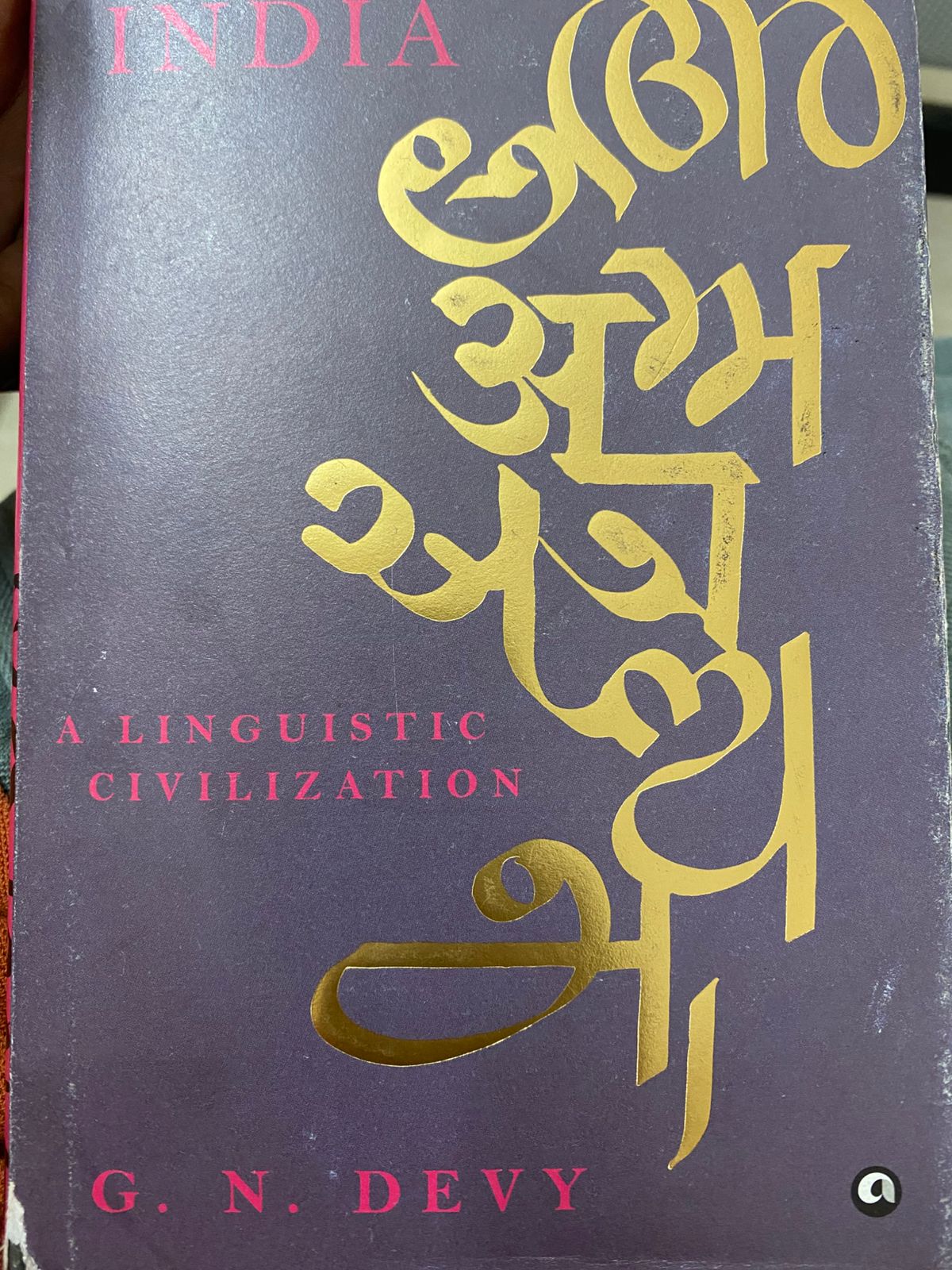“Language is not only a social system of verbal icons, arbitrarily assembled through ages, it is also a ‘means’ of carrying forward the cumulative human experience of millennia to the future generations. When language trajectories are snapped, the accumulated wisdom in those languages too gets submerged and continues to survive in severely truncated, irreparable, and insensible forms.”
Among the finest books I have read this year thus far. The foremost linguist of India has brought out a publication that leaves you breathtaking in place due to the vast expanse of historical and social evolution that it covers and sad as you finish the book on what we are losing in plain sight. It is not even an appeal to ‘save’ a language, just brutal statistics, historical injustices, clinical analysis of the causes that led to a few to be recognized as languages and others as dialects. 
I found the convenience with which Indian State has brushed away languages most troublesome to read. Did you know that nearly 50 other languages have been clubbed under ‘Hindi’ speaking category in the 2011 census to bolster the number of Hindi speakers? Or for that matter out of the 19,000+ languages recorded during data collection, only about 6% were ‘accepted’ by the Government of India? That ‘oral’ languages were not brought under the 8th schedule of the Constitution because they were considered less evolved by the Colonizers. And even the colonial selection of languages with scripts was based upon decision of one person who was appointed for the job by the British? That there are languages that are written as art, others written in air, and others that have shed their script to remain oral. There is a detailed discussion what constitutes ‘knowledge’ and how history (or multiplicity of histories) shaped the same in Indian context.
The book is divided into 4 broad articles – India as a Linguistic Civilization, Language and the State, Memory and Oral Traditions and Digital Future, Translation, and Knowledge. But for some repetitions, the book is a pleasure to read. The author covers the conceptual evolution of many of the linguistic terms that have evolved and shaped the history of languages and history of history as well. Highlighting the complexity and challenge of trying to speculate on Indian languages, he manages to capture the nuances of Indian linguistic evolution. I found it fascinating that India is the only country / continent that could withstand most parts of its languages through colonization, while America and Australia saw a near annihilation of its languages. Even more significantly, the engagement with outside languages often results in enriching of both the languages in Indian context.
For anyone interested in India, Indian languages, history, society, how the languages have evolved and interacted, grammar and concerned as to what we are losing, this is a publication you ought to read. It will leave you with thoughts to ponder for quite some time. ‘knowledge’ as a verb is what I keep coming back to. Yes, that is one of the most impactful aspects of Indian civilizational culture that comes out strongly in the book..
Add new comment